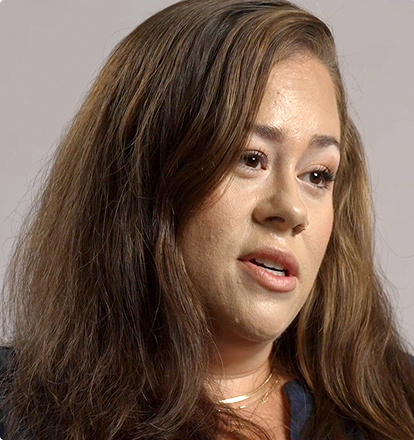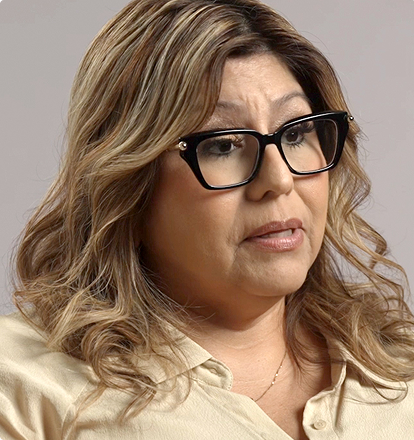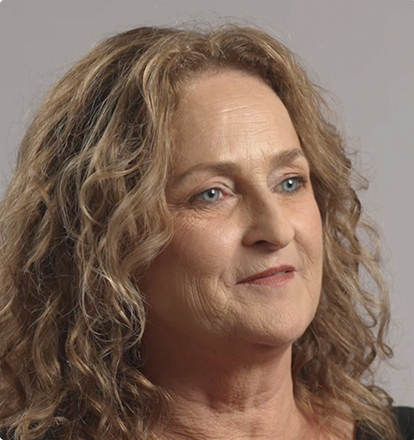Free webinars connect you with answers, and with others living with MASH
The webinars are live, web-based discussions held by nurse educators and Patient Ambassadors.
You can get answers to your questions in real time and connect with other people living with MASH.
Life With MASH
May 29, 6:30PM ET
Living with MASH can be difficult, but it's doable. Learn how to manage your day-to-day life with MASH.
Boost Your Liver Health
June 17, 7PM ET
Discover how making healthy lifestyle choices can help support your liver health. Gain helpful tips from other people living with MASH.
These programs are not intended to be medical advice or take the place of discussions with your healthcare team.
Real tips from people living with MASH
Exercise and nutrition are both great ways to start managing MASH. But there are additional steps you can take to make a difference. Discover what our Patient Ambassadors did:
Your guide to getting a test for liver scarring
Your fatty liver disease could actually be MASH. Left unchecked, MASH can lead to irreversible scarring. A test for liver scarring is the only way to know.
This Test Request Guide is a step-by-step guide to help you work with your specialist to put a liver testing plan into action.
Ask for a test for liver scarring
When you ask, also let your specialist know if you have other health factors associated with liver disease, including type 2 diabetes, high blood pressure, high triglycerides, or abnormal cholesterol levels.
Ask your specialist which test is best for you
Tests for liver scarring may include imaging tests such as FibroScan®, blood-based tests such as FIB-4 (Fibrosis-4) or ELF (Enhanced Liver Fibrosis), or a liver biopsy.
Identify where your test will take place
Depending on the type of test your specialist recommends, you may be able to receive it at your specialist’s office. However, some tests may require going to a lab, a hospital, or other type of facility.
Schedule the test or get a referral
If the test will be conducted in the specialist’s office, schedule it before you leave. If the test needs to be done in a different facility, such as a lab or hospital, make sure you know what steps need to be taken to make the appointment.
Clarify the steps after testing
Find out how you will receive your results and who will review them with you. If you are diagnosed with liver scarring, make sure you have a liver specialist who can help manage your condition.
Take a screenshot or print this out and bring it to your next appointment.
Want to learn about an option to help manage your MASH?
Frequently asked questions
If you have fatty liver disease or MASH, you may have a few questions. Click on the selections for additional information.
The most important question: Do I need to get tested for liver scarring?
The answer is always yes. Scarring often adds up silently and you won’t know unless you test. Ask your specialist at your next appointment.
Can fatty liver disease or MASH get worse?
Yes. Fatty liver disease can advance to MASH, which ultimately can lead to cirrhosis. It’s important to talk to your doctor about testing for liver scarring because it can happen silently, so you may not notice any symptoms.
Can fatty liver disease or MASH be life-threatening?
Yes. If left unchecked, liver disease can be life-threatening. In order to help prevent serious consequences like the need for a liver transplant, liver cancer, and cirrhosis, talk to your specialist about testing for liver scarring.
What other health factors are associated with fatty liver disease and MASH?
There are many factors that can contribute to fatty liver disease or MASH, including genetics, obesity, high blood sugar, high triglycerides, and high blood pressure. While everyone has different factors at stake, everyone should talk to their specialist about testing.
What tests will show how far fatty liver disease or MASH has advanced?
There are several different tests that can determine scarring advancement, including imaging tests, or liver biopsy. Some types of blood tests can detect if scarring is present. A liver enzyme test alone cannot diagnose your stage or level of scarring.
What type of specialist can test me for liver scarring?
Hepatologists and gastroenterologists are examples of specialists who can help with your MASH diagnosis. Use our Specialist Finder tool to help locate a liver specialist near you.
What are next steps after receiving test results?
After you receive your test results, it’s important to review them with your liver specialist. Schedule a follow-up visit to discuss your liver status. If you have MASH with scarring, ask if there are management options.
What can be done to help improve liver health while living with MASH?
One of the most important things to help improve your liver health is testing for liver scarring. A test will help you understand the status of your liver. Work with your liver specialist to discuss testing and how to find a management plan that works for you.








